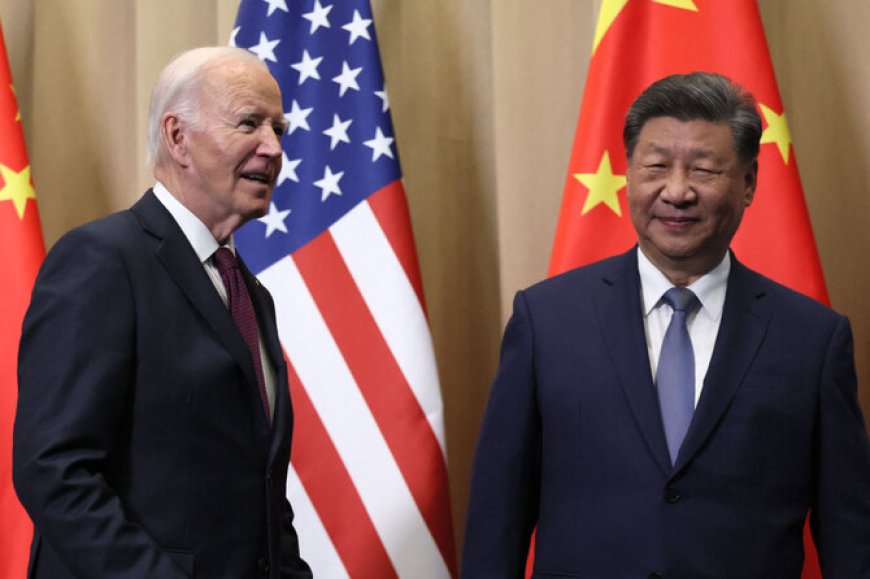Among strained U.S.-China relations, Xi Jinping signals cooperation with Trump Team.
Chinese President Xi Jinping promised to cooperate with President-elect Donald Trump's government in order to mend the US-China relations. Xi underlined the need of preserving a "stable, healthy, and sustainable" cooperation amid continuous tensions when meeting departing U.S. President Joe Biden at the Asia-Pacific Economic Cooperation (APEC) summit in Lima, Peru. Trump's hardline rhetoric and suggested 60% tariffs on Chinese imports loom big over bilateral relations as he gets ready to take office in January, sparking a fresh phase of economic and geopolitical confrontation.

Chinese President Xi Jinping promised to cooperate with President-elect Donald Trump's government in order to mend the US-China relations. Xi underlined the need of preserving a "stable, healthy, and sustainable" cooperation amid continuous tensions when meeting departing U.S. President Joe Biden at the Asia-Pacific Economic Cooperation (APEC) summit in Lima, Peru. Trump's hardline rhetoric and suggested 60% tariffs on Chinese imports loom big over bilateral relations as he gets ready to take office in January, sparking a fresh phase of economic and geopolitical confrontation.
Under Biden, who imposed export limits on breakthrough technologies including artificial intelligence and semiconductors and accused Beijing of cyberattacks and increasing pressure on Taiwan, China's problems with the United States have grown more severe. In response, Xi advocated for cooperation, cautions against rivalry "roiling the relationship or even setting it back." Notwithstanding this, China's economic resiliency suffers challenges as its development slows down in response to U.S. trade policies and internal economic issues. Trump's intended cabinet picks, meantime, allude to a harsh attitude on Beijing that might widen differences.
Revealed at the summit, Xi's diplomatic efforts in Latin America expose China's strategic turn toward the backyard of the United States. Beijing is trying to establish its influence in the area by announcing infrastructure projects, economic deals, and state visits, therefore triggering fears in Washington about possible military and intelligence bases close to American borders. This diplomatic frenzy highlights China's larger worldwide counter-U.S. dominance plan. But with Trump's government probably giving protectionist trade policies first priority and mounting pressure on China top priority, the U.S.-China relationship finds a pivotal point that may change world political and economic dynamics.













































